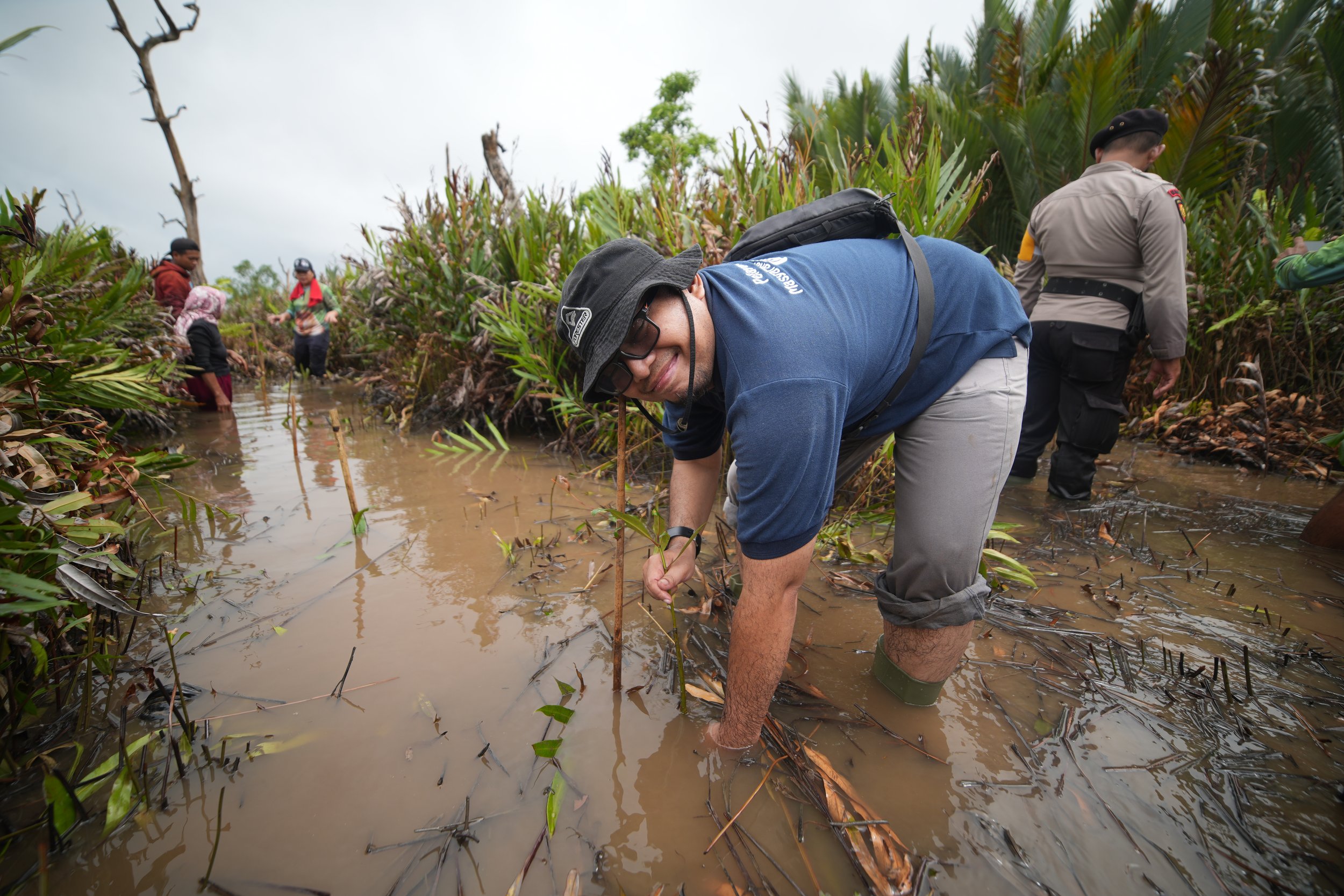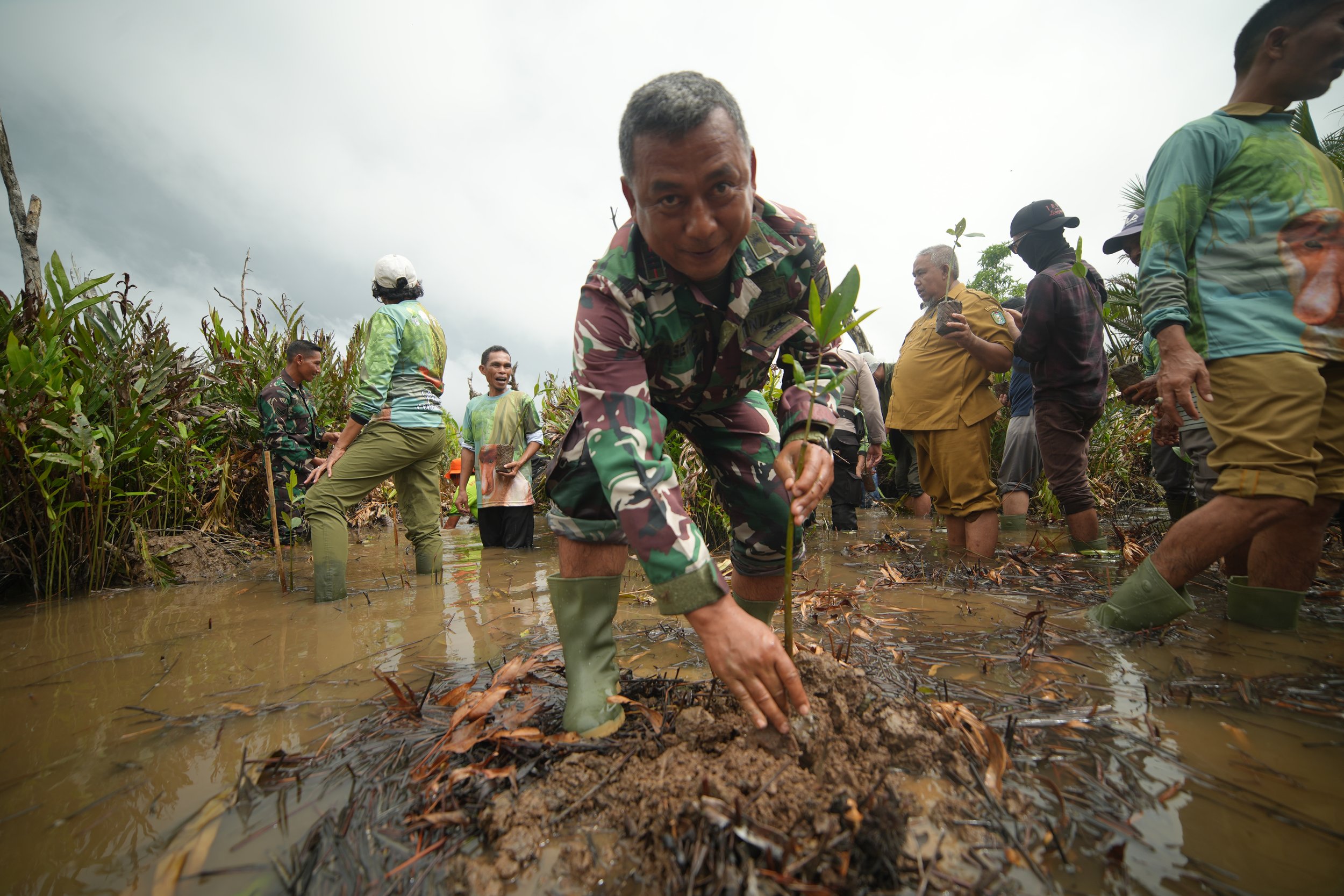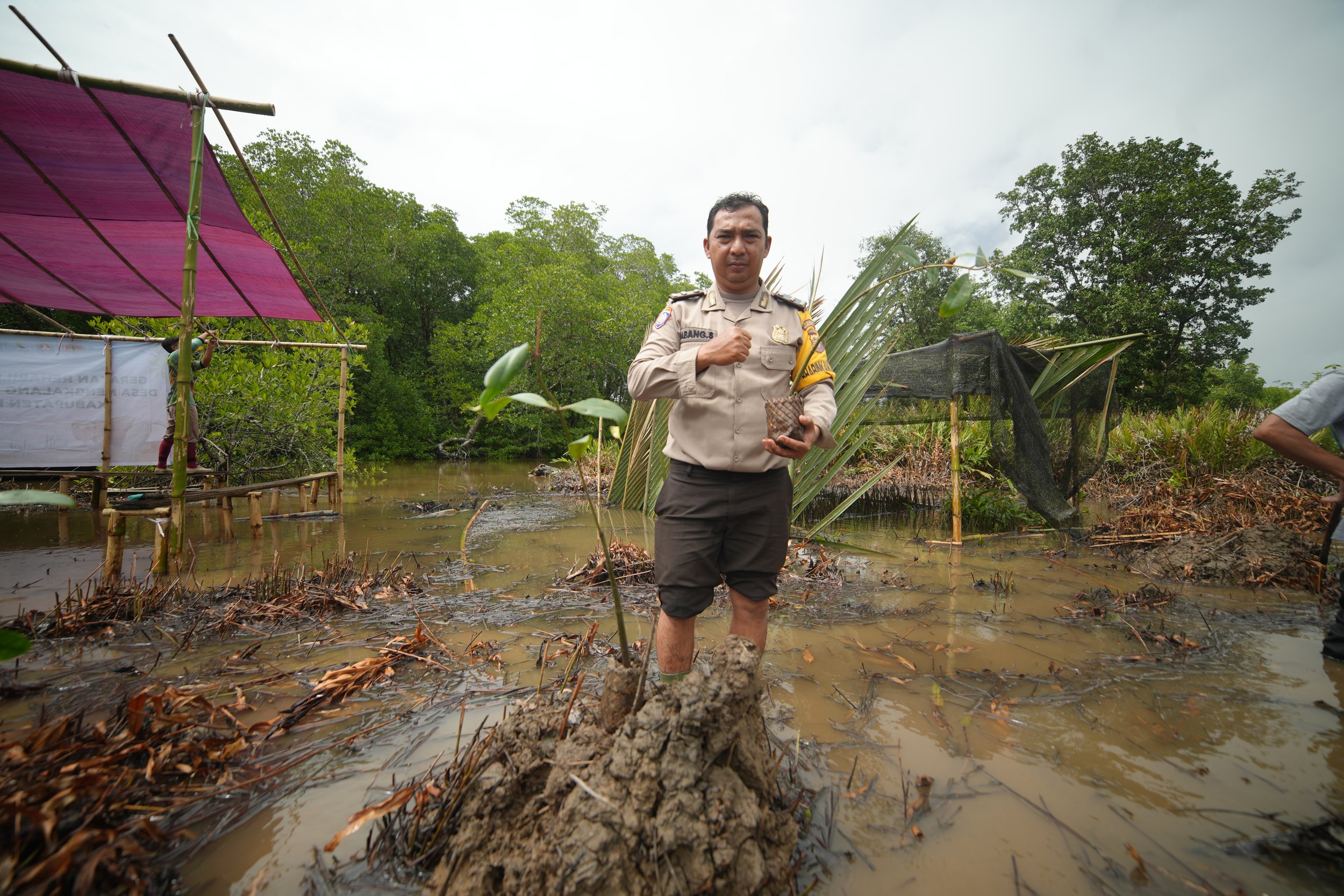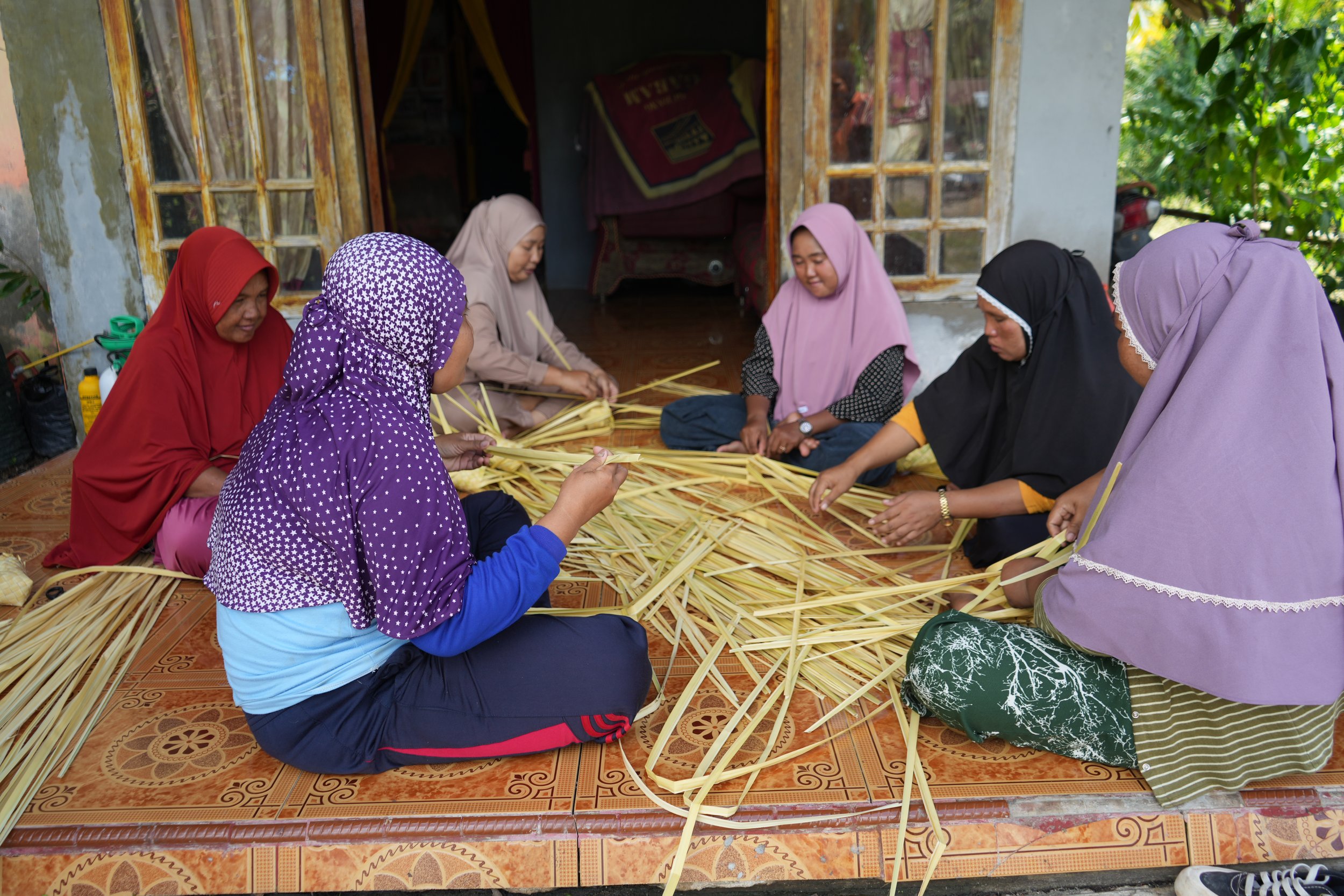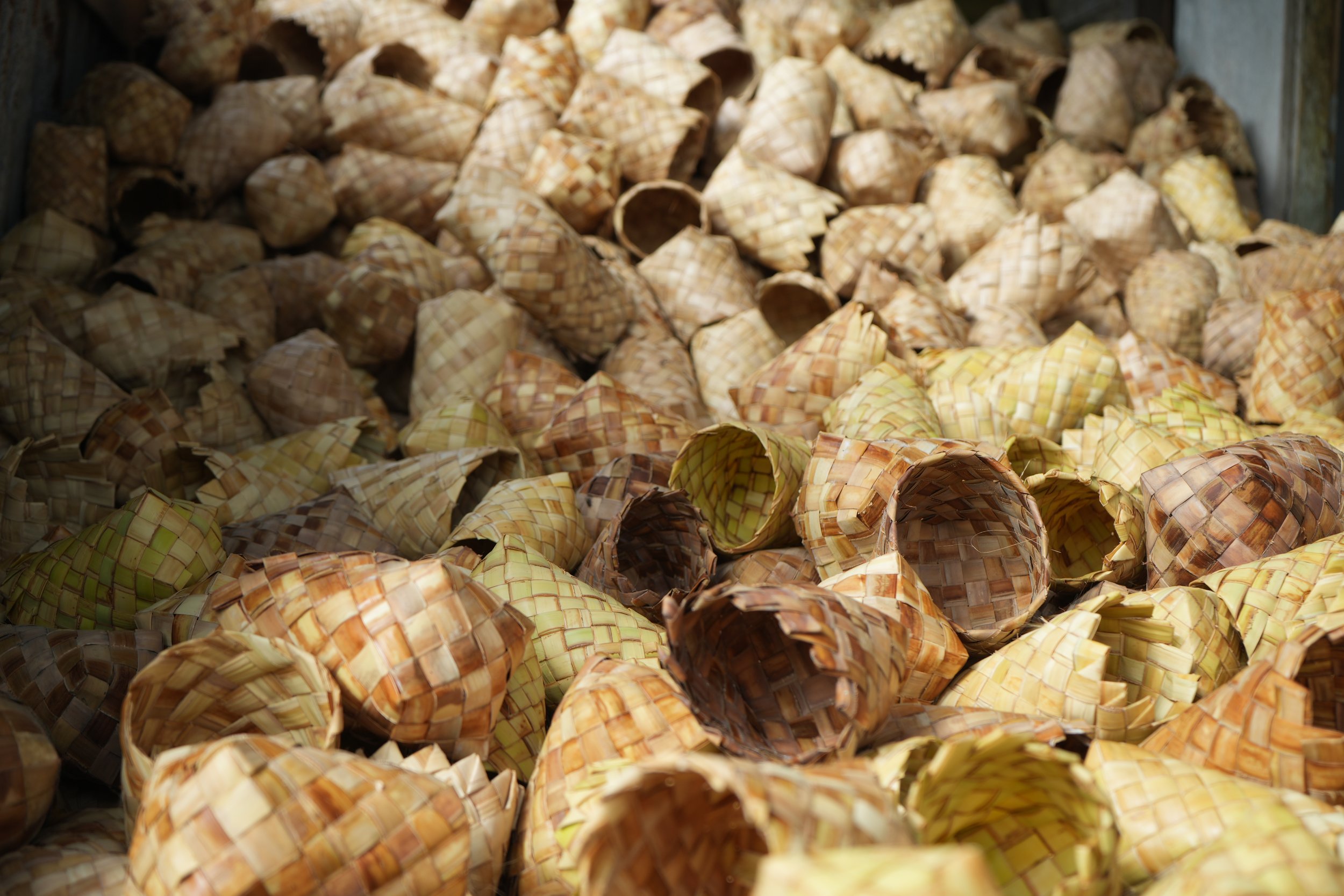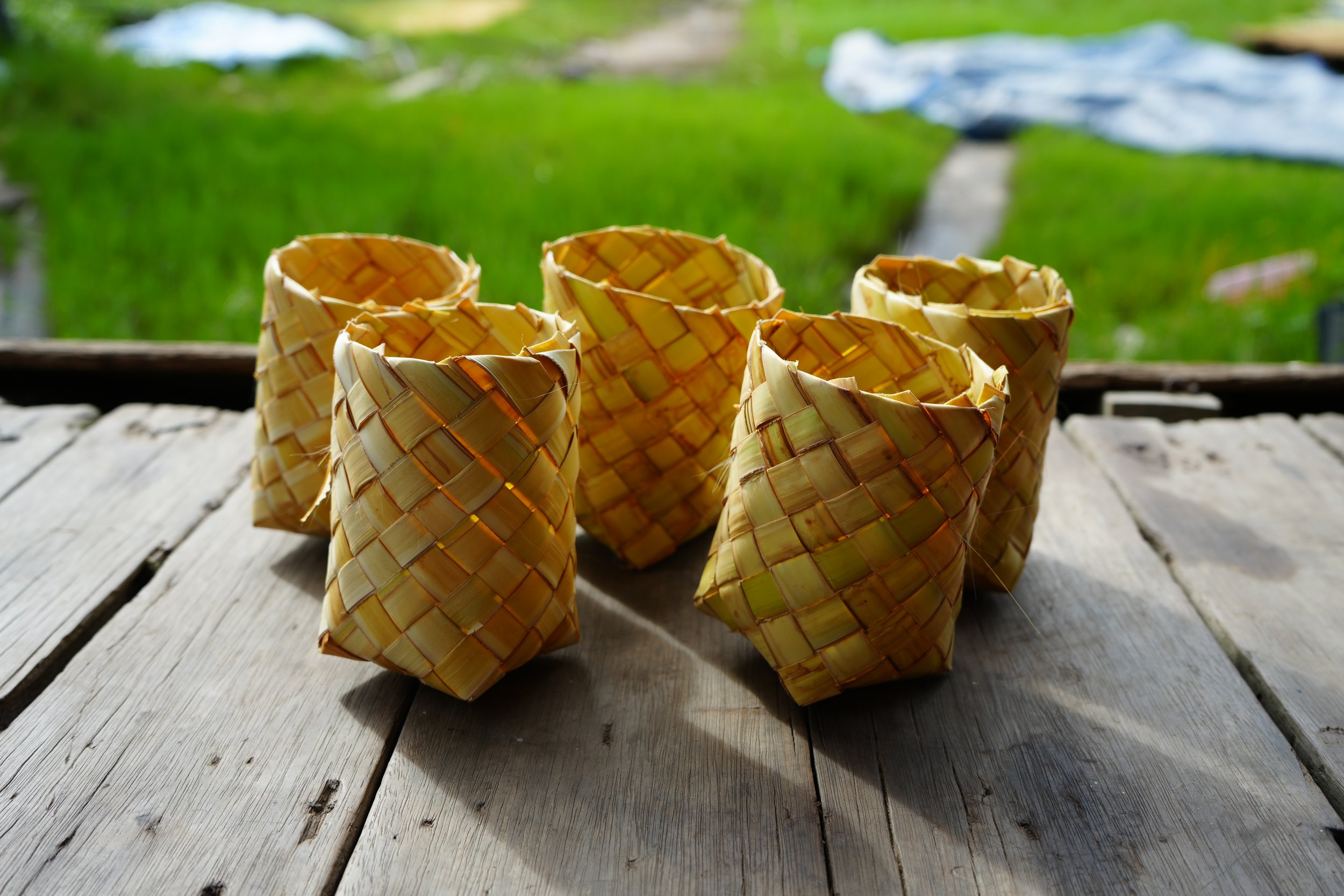When tradition meets innovation for conservation
Planting Without Polluting: Eco-Friendly seedling bag Innovation
In the vast mangrove forest located within the region of Kubu Raya in Western Borneo, dozens of community members stand waist deep in murky water, cradling young mangrove saplings gently nestled in small novel vessels made from local plants in the name of conservation. These young trees are destined to be planted in the ground to help restore large sections of open mud flats.
The community of Mengkalang Jambu has selected this open location based on the understanding that its restoration will help prevent coastal erosion, help sequester carbon to help stabilize the climate, provide critical habitat to Kubu Raya’s threatened and endangered wildlife such as the proboscis monkey and saltwater crocodile, and provide habitat for important human food species such as mud crab and shrimp.
"Efforts to restore ecosystems with mangrove planting activities are not only for repairing degraded mangrove areas, but also for reducing the impact on climate change, as well as increasing biodiversity, especially mangrove stands and coastal and marine water biota," said the Head of LDPH Mengkalang Jambu Village, Haripin.
This effort, coordinated by Mengkalang Jambu Village and supported by Yayasan Planet Indonesia and the Forest Management Village Institute (LDPH), set out to plant hundreds of thousands of new saplings into an area of nearly 3,000 hectares. This community has been doing similar restoration work for years, but new this year is an advancement by which the trees are being grown, carried, and planted.
Through the Ecosystem Recovery Program, YPI team members and community members have worked together to deliver a much more eco-friendly solution to planting hundreds of thousands of trees in a restoration area. Enter, the eco-seedling bag. Historically, plants have been grown and transported in plastic bags, such as the ones popularly sold in nurseries and garden stores around the world. These planters are problematic as they contain plastic waste which takes centuries to break down and truly never decomposes. They typically break up into tiny pieces and become microplastics, which are often consumed by fish species and eventually by humans. This plastic adds unnecessary toxins into the ecosystem which are harmful to all communities. The world is plagued with excessive plastic garbage, and many conservation organizations set on restoring habits still use plastic bags and plastic bins in habitat restoration projects.
The new sapling planters, known locally as eco-seedling bags, are made from a local plant species called nipah by weaving its long leaves together into small basket like structures. This bag is strong enough to hold dirt, mud, and the roots of a young mangrove tree. Each bag gets one sapling.
"We are trying to be more oriented towards materials that are more environmentally friendly, a substitute for plastic polybags, namely eco-polybags woven from Nipah leaves, as well as a form of utilizing mangrove resources which can become an economic opportunity for coastal communities," said the Technical Assistant for Social Forestry at the Planet Indonesia Foundation, Oka Pransiska.
This technique is also more efficient when it comes to planting, as the whole system can be plugged into the ground, saving time. The organic planter does not have to be removed and collected like previous sapling holding devices. The eco-seedling bag also provides nutrients to the young tree as the woven plant material decomposes back into the environment.
Each eco-seedling bag is hand crafted by women in the village, who then sell the product to the restoration teams to be used for the restoration effort, supporting their livelihoods as well as protecting the environment.
The development of these bags is changing the way large scale mangrove plantings are done in Kubu Raya, and research and development is underway to apply this technique with other village partners in other project sites across Indonesia.
If you have any questions, please reach out via admin@planetindonesia.org. Sign up for our newsletter and follow us on our social media Facebook here and Instagram here to get timely updates on our activities, an insider’s look into the lives of front-line conservationists, and ongoing programs.

